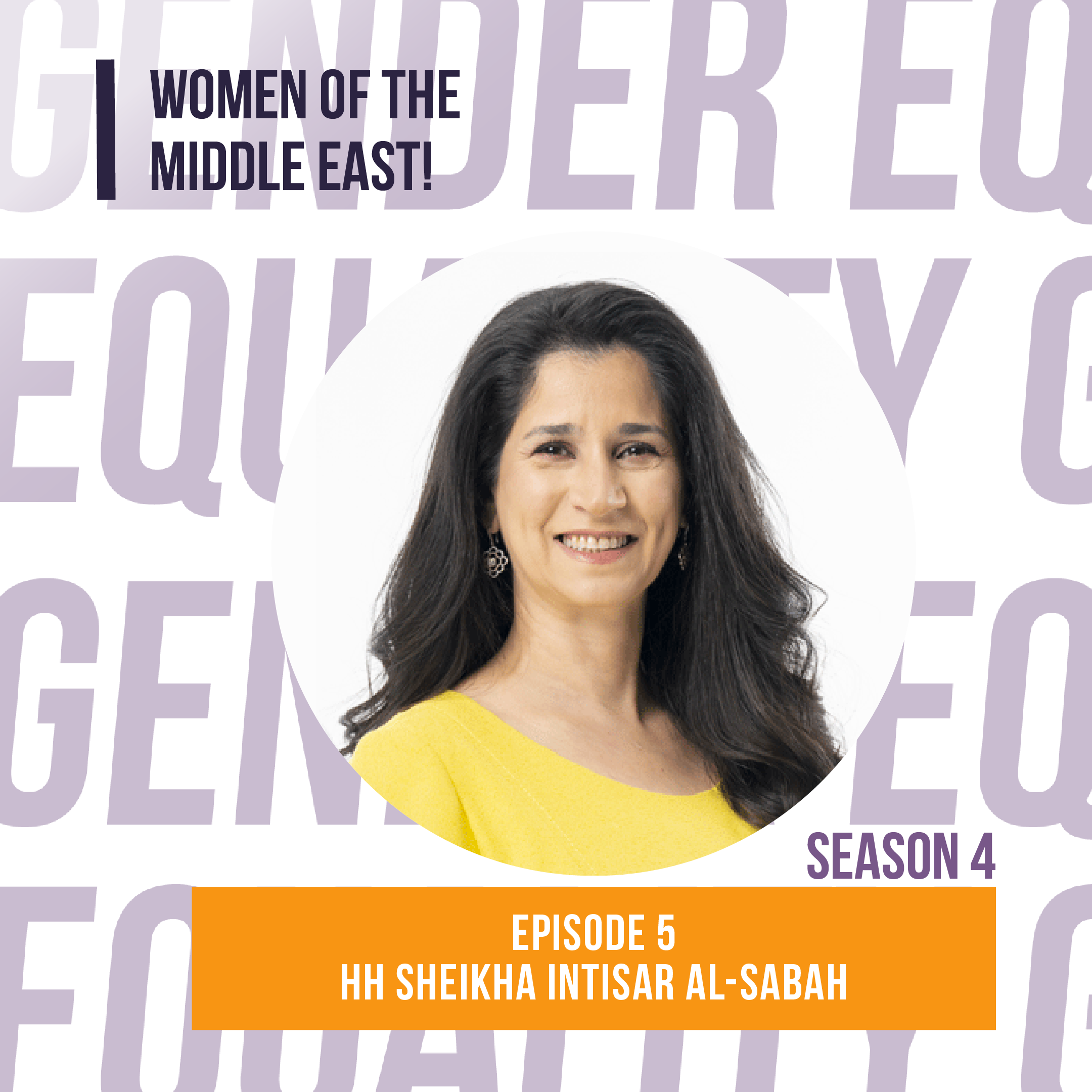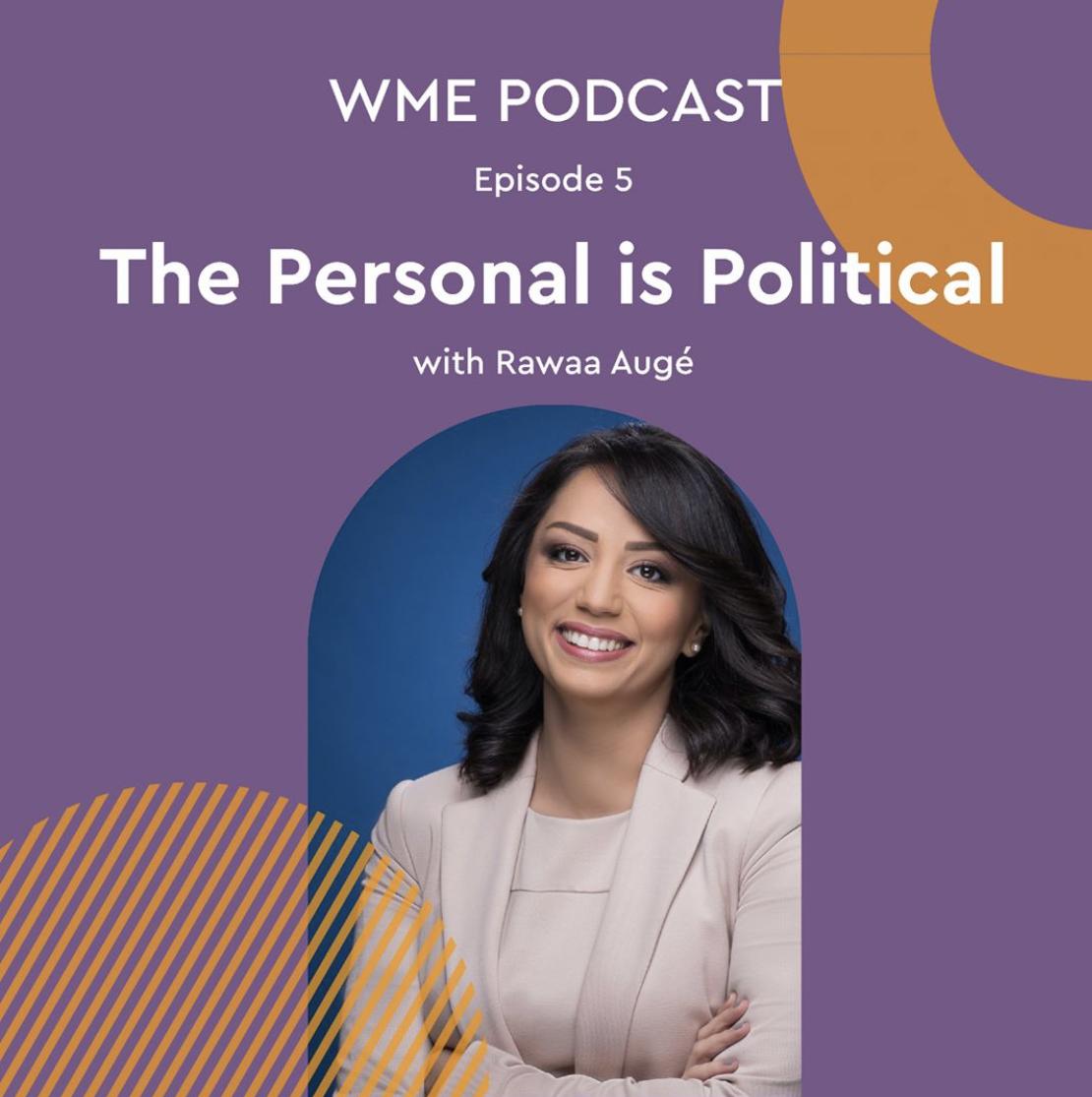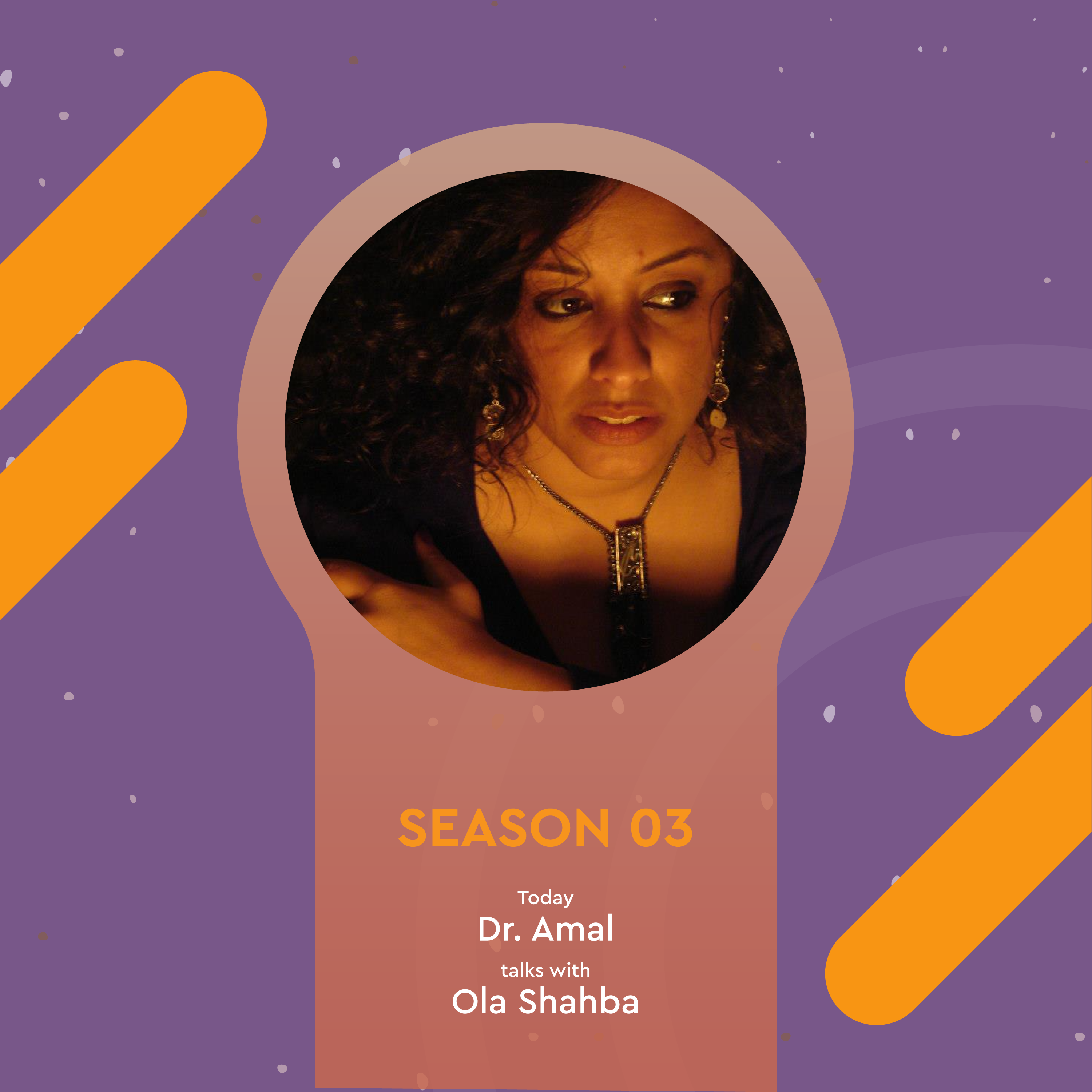Episode Transcript
[00:00:03] Speaker A: Hello and welcome to Women of the Middle east podcast. Women of the Middle East.
This podcast relates the realities of Arab women and their rich and diverse experiences. It aims to present the multiplicity of their voices and wishes to break overdue cultural stereotypes about women of the Middle East. My name is Amal Malki. I'm a feminist scholar and educator. This is Women of the Middle east podcast. Hello and welcome to Women of the Middle East Podcast. Today, I'm introducing a new name. Her story has captured me on so many different levels. Noor Latabi. Noor Latabi is a Jordanian writer whose literary career is rooted in themes of resilience, healing and personal transformation. Noor lost her leg to cancer at the tender age of 13. This important turn in her life has transformed her experience as a human and as a woman.
[00:00:58] Speaker B: Thank you. Thank you so much.
[00:00:59] Speaker A: An Arab female teenager, right, who had to deal with puberty as a life changing state. You know, puberty carries a set of cultural expectations that already impact a girl's relationship with her own body and issues of sexuality and reproductivity. It is when our culture first tells the little girl that you are a woman now, how did you deal with having had to go through cancer and lose your leg while your whole identity as a woman is being constructed for you at that very tender age?
[00:01:35] Speaker B: I can tell you it was not an easy decision at all. But I didn't have any options in that time. When I was 13, I decided to have amputation. So I decided on 13 years old just to live my life within the artificial leg. And as you mentioned, it was a turning point. Woman from Middle East Arab women. Instead of thinking about my teenager stage, instead of just focusing on other stuff in that age. And my personality has completely changed because of the story and because of what happened on that time. But I learned a lot. If I. If the story didn't happen to me, if I didn't lose my leg, I will not be here today with you. And to be a writer and to discover my skills in writing and to publish four books and the fifth one is on the way.
[00:02:22] Speaker A: Was it really your decision or was it your family's decision?
[00:02:25] Speaker B: To be honest, it was my decision. I remember the doctor was sitting with me along with my father and my uncle, and he said, did you need to live your life like other people? There are a lot of people who lived with artificial leg or you want to die because we don't have an option. And so I told him, no, I want to live with artificial leg knowing that I Didn't have any background about what's artificial leg and how it looks like and so on. It was my decision and definitely my family, they support it because they want me to. To live.
[00:02:55] Speaker A: Noor going back to the question, how did you deal with it now, making the decision and not knowing.
[00:03:02] Speaker B: Yeah, it was a lot of frustrations. I questioned why it happened to me. I was in. In. In in a very young age. I was really good in. In my sports, especially at school. First, I can say the first maybe three, four months was not an easy. I didn't accept to go for therapist for physiotherapy or to even watch videos. Related quickly I turned to change my mindset on that time I decided no, I need to step. I have to be strong, I have to cope, I have to adapt. I have to go back to my school, I have to go back to my family, I have to go back to my mother and I don't have an option. I decided to just let it go. So I have to be strong and to stand to myself and to build and to rebound my support system.
I do have the support system from the family, from the school, school, from the country. But. But if there is no support internally, if my inner voice will not keep telling me you have to stand, you have to be strong, any support out from outside will not help. By these, let's say, small and simple tools. I. I dealt with, with a very difficult circumstances that I faced when I was 13 and.
[00:04:12] Speaker A: But it takes some time, I think the seven stages.
[00:04:15] Speaker B: Of course, of course you're losing a.
[00:04:17] Speaker A: Part of your body and at the same time you're, you're growing, you're. You're becoming, you know, as the culture defines it, a woman. Right.
[00:04:26] Speaker B: Exactly.
[00:04:27] Speaker A: How did this impact the way you look at yourself as a girl, as a woman?
[00:04:31] Speaker B: It affected me at the beginning. I'm a girl, I need to live like other girls. For example, to wear the heels. But I decided no, that I'm not alone in life. I saw other people who lost two legs. They were female, whether from our culture, whether from another culture. So it's not only my journey. It really helped me to heal and to understand.
Nothing is guaranteed in life and you need to think about it from different perspective. So my maturity level and my understanding of life and the perception of my life has completely changed from that experience. It taught me a lot of how to be resilient, to transform, dependent to independent. I was so dependent on my family, especially on my mom. But I became so independent on myself.
[00:05:19] Speaker A: We all have disabilities, right? Some of us have it visible, but most of us have invisible disabilities that we carry in and we walk and we live and we communicate with people.
[00:05:31] Speaker B: But at the end of the day, it's the fact that I'm special needs, it's obvious that I do have artificial legs. I don't mind to be grouped as a special need and disability, as you mentioned, disability, it can be visible, can be invisible. Disability can be in mindset, I don't mind, to be honest, to be grouped. But at the end of the day, you reflect your personality in others. You, you tell others how you would like others to see you. Now, you cannot control their reactions, you cannot control their, let's say, the way that they, they gonna communicate, the, the way that they gonna deal with you. But you can, by your self esteem, by your confidence, tell them that I'm normal. Yes, I do have artificial leg, but at the end of the day, I'm working, I'm achieving, functioning and, and so on. So. But it's still, I mean, in communities, in cultures, irrespective to any culture, they still group it as disability, special needs. Maybe again, at the beginning there was some of the impact, negative impact, but later on, I understand, sometimes it's benefit, sometimes it's to your advantage to be grouped as special needs and disabled people. It's part of dni. At the end of the day today, if we need to talk about diversity, equity, inclusion, and to be included and to be exclusive in such community, whether at workplace, whether at personal level, it's fine to be different. And I don't see the differences in having artificial leg. We are different in cultures, we are different in the way of our thinking, the way of our living and so on. So why not to be different in having artificial leg? Yeah, absolutely.
[00:07:05] Speaker A: I totally agree with you. And when we speak about diversity and inclusion, you know, gender equality comes, you know, within that spectrum. And it's really interesting because in your case it's very intersectional. We're talking about a woman who has lost a leg, who is living with a disability. Okay. And to correct the terminology, of course, it's not disabled people, it's people with disability.
[00:07:28] Speaker B: Okay, absolutely.
[00:07:29] Speaker A: Again, we are all people who have disabilities, whether they're visible or invisible. And there is a literature, growing literature in the Arab world from women who consider themselves as a woman with disabilities. And they're creating an amazing literature. I would mention a dear friend and someone I really, really love and love her writings. Shahad Al Shamri from Al Kuwait. She speaks about the highs and the lows. What does it mean to be a woman who is from the Gulf, who lives within that cultural context and have those and negotiate? And she speaks about very intricate and very sensitive matters like marriage, like love, you know, represent.
[00:08:12] Speaker B: Exactly.
[00:08:13] Speaker A: I would love to know more about your first work that focused on your case. You came out and you spoke about it. It doesn't mean that you are the only one. You are the brave one who.
[00:08:26] Speaker B: Thank you.
[00:08:27] Speaker A: And a pioneer who decided to take this case and turn it into a positive source of hope for yourself and for others. So tell me more about your first.
[00:08:37] Speaker B: Book, no matter what. Okay. The story happened in 1998, but I decided to write it in 2016 after a long period of time, because I'm more confident. And I feel that now it's the time to just write. I was hesitant at the beginning because of the culture that I came from, because maybe of the reactions of people. And it was encouraged also from one of my closest friends that she was telling me, noor, please go ahead and write about your story. And I'm sure that there are a lot of people who have the same or similar case and they would love to hear other stories. So I decided to write about it and remember every single thing that happened to me on that time. And from that experience, I didn't stop. It helped me to discover that I have the writing skills. So that's why I decided to write second and third and fourth book. I didn't stop only on. No matter what. It was written in English because the story happened in Ukraine and then translated in Arabic. Mahmat Kallaf al Amir.
[00:09:37] Speaker A: But you had to start with your own story, right?
[00:09:39] Speaker B: Yes. Yes. And I didn't realize that I'll be a writer. I was just. I wanted to write and I wanted to publish and to share my story with others like a learning lesson, and to share my experience. Whether they want to empathize, whether they want to sympathize, it's up to them. At the end of the day, I cannot control their reactions. From that experience and from that first book, I really enjoyed writing. And I decided, I said to myself, look, you have the skills in writing. Please continue writing. And definitely with other tools. Like, I read a lot.
[00:10:13] Speaker A: What does writing mean to you?
[00:10:15] Speaker B: It's passion, it's life, it's happiness. It's my identity. It's where I am today.
It reflects the happiness around me. So if I didn't write, I feel that something that I missed in. In my day.
[00:10:28] Speaker A: I mean, how do you push boundaries through your writing. As an Arab woman, the first thing you look about, how would the reader perceive me? The first thing we think as Arab women, what would the society think of us?
[00:10:42] Speaker B: Yes, exactly.
We should. We should think about it. We should consider them. When I write, yes, I'm bold a little bit, but also I need to take into consideration where I am from, the culture that I'm. I. I'm belonging to the community, the. The Middle eas.
As a writer, I have to be bold to some extent, but at the same time I need to deliver the message that's the most important and to have this appropriate content for a reader to understand what I meant.
I mean, between the lines, but to be too bold. For me personally, I don't see that myself, but maybe it depends on the topic itself.
[00:11:24] Speaker A: What's your forthcoming book about?
[00:11:26] Speaker B: The fifth one. It's going to be a novel, so I think something will be purely new. Maybe I cannot talk about it right now because I'm still writing, I'm still editing. Hopefully before the end of the year it will be published.
[00:11:40] Speaker A: What can you tell every girl going through puberty today and have to deal with body image issues and making amends with their own bodies? What do you tell them?
[00:11:51] Speaker B: Maybe I'm not good in giving advices, but I can say, be yourself, accept yourself, try to accept yourself, try to see what are the advantages that you do have. Try to change yourself for yourself, not for others. Because if you don't believe in yourself and if you don't have this confidence in yourself, no one will, no one ever will see the opposite. So you have to reflect that to others by loving yourself, accepting yourself, and to say to yourself that I like my body, I like myself, I accept it. If something that cannot be controlled, so I have to accept it. But if it's my control so I can look, how can I change it, how can I modify it? And so on. But again, I mean, no one. Don't expect anyone from outsider, from outsiders to help you. You should help yourself and you should accept yourself.
[00:12:44] Speaker A: What is the book you want to write but you haven't written yet?
[00:12:49] Speaker B: Maybe something for kids. I'm willing to write something for kids.
[00:12:52] Speaker A: This generation who have been watching the news. The genocide in Gaza has been unfolding in front of our eyes. This generation of kids will be traumatized all their lives. And unfortunately they are internalizing it as a normal part of life, which means life is awful, Life is awful.
So generation is being traumatized on so many different level.
So I would really encourage you to write something for this generation to show, right. That even with the hardest circumstances you can go through, there is basically, there is a bit of hope.
[00:13:33] Speaker B: Yeah, I totally agree. And I truly wish, whether myself or whether any writer also to talk about it, because it's worth it, I believe.
[00:13:41] Speaker A: So how do you define yourself? This would be my last question.
[00:13:44] Speaker B: I have a lot of dreams. I like to continue, grow. I have a lot of dreams, especially in writing, adding value to myself, adding value to the society, to community.
[00:13:53] Speaker A: I lied. Not the last question. You said you liked sports. Are you back to doing sports?
[00:13:59] Speaker B: Yeah, I have my personal trainer and I'm just doing a lot of exercises, cardio and other exercises because it's important. It's important to strengthen your muscles, strengthen your mental health as well. And it will affect the entire body. So yeah.
[00:14:15] Speaker A: Noor, I have so much respect and so much love for you.
[00:14:18] Speaker B: Thank you very much doctor. It was really pleasure and I really love this podcast and looking forward to meeting you in person.
[00:14:25] Speaker A: This is Women of the Middle East. Thank you for listening and watching. To stay up to date with Women of the Middle east podcast. You can subscribe and don't forget to rate us. If you would like to contact me directly, you can do so on Instagram or via email.


